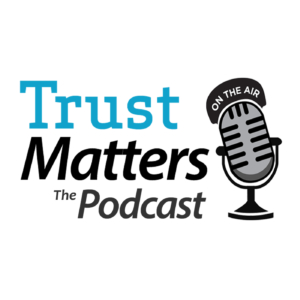 I had a delightful Notting Hill lunch this spring with Sonja Jefferson, of Valuable Content fame. I suggested the word “content” itself, in an era of content farms, sounds content-neutral, even content-free. Hence the challenge:
I had a delightful Notting Hill lunch this spring with Sonja Jefferson, of Valuable Content fame. I suggested the word “content” itself, in an era of content farms, sounds content-neutral, even content-free. Hence the challenge:
How to think about quality content in a content-challenging age?
Sonja herself offers insights in Are You Content With the Word ‘Content?’
Harvesting Content in an Age of Content Farms
First, some background. We all like to believe quality (or art, truth, beauty, love) is its own reward. Unfortunately, living costs money. And it’s nice if your labor of love can pay the rent. Enter SEO (Search Engine Optimization), a way to have your baby pay for itself.
If you think search doesn’t drive buying behavior big time, think again. Your fantastic content will only attract buyers if they can find it. Hence the classic tug of war between art and advertising, pathos and product placement, literature and mailing lists.
Google et al are not stupid; they won’t let you just pile key words onto a blog and earn high ratings. But the robo-marketers are no dummies either.
Richard MacManus wrote two years ago in The Age of Mega-Content Sites:
…to succeed in the content business on the Web, you should pump out hundreds of pages of content every day – preferably thousands.
The two main players in what became known as the “content farm” business—Answers.com and Demand Media—used either user-generated content or cheap free-lancers. Basically, they wrote vacuous “articles” containing key words that then increased the search ranking of sites using those words. (Remember those ads on CNBC and Bloomberg offering to raise your search results, “without paying a penny for clicks?” Content farms).
If that formula sounds familiar, think Reality TV, term papers for sale, or even automated article-writing software. You no longer have to wait eons for a monkey to type Hamlet; a virtual monkey can concoct a simulated Hamlet, Cliff Notes version, right now. It’s literary carpet-bombing; blitzing the world with what looks like meaningful words, which are in truth full of sound and fury, signifying nothing.
Last year, Google’s famed (in some circles) Panda algorithm upped the ante by taking on the most egregious offenses, aiming at extremely low levels of originality. Suddenly, some big names got caught with their SEO pants down.
We’ve always been in a world where art and commerce coexist uncomfortably. But the tools of commerce have been so radically increased in recent years that we are now re-defining an old word: content.
Content Then, Content Now
Journey back just 9 years. I searched (Google) for the term “content” from all web sources from 9/1/2001 and 9/1/2002. Here are the top five entries:
The Web Content Style Guide
www.gerrymcgovern.com/web_content_style_guide.html
“The Web Content Style Guide is a valuable resource for anyone involved in creating content for the Web.” …
The Model>Content Standard:Summary
www.intime.uni.edu/model/content/cont.html
The content of education is, of course, of extreme importance to the future of our society. Fortunately, in recent years, content standards have been developed for …
CityDesk – Introducing CityDesk 2.0
www.fogcreek.com/citydesk/
Usability guru Joel Spolsky and the team at Fog Creek Software have created a stunningly easy to use content management system that runs on Windows. …
Reading in the Content Areas: Strategies for Success, Education…
www.glencoe.com/sec/teachingtoday/educationupclose.phtml/12
Rather, content teachers should understand that the difference between successful and unsuccessful readers is the ability to effectively apply strategies to …
Wood Equilibrium Moisture Content Table And Calculator
www.csgnetwork.com/emctablecalc.html
Apr 1, 2002 – Wood Equilibrium Moisture Content Calculator, included is a table of data.
Here are today’s top 8, by comparison:
Content – Define Content at Dictionary.com
Content – Wikipedia, the free encyclopedia
Content (media) – Wikipedia, the free encyclopedia
Content – definition of content by the Free Online Dictionary
Questionable Content
Content » News [Cory Doctorow]
Generated content, automatic numbering, and lists
Content Marketing in a Blink: The Content Grid v2 [Infographic …
Content Then was a term used in specific contexts: water content, web writing style, educational content. The term “content” simply did not appear without an adjectival phrase to give it contextual meaning: the content of education, the content of a dictionary, the content of a movie (“content management system” was the exception). “Content” had no meaning absent the adjective that bounded it. Context added meaning.
Content Now is unleashed. It has become a standalone noun, needing no modifier. The assumption—and it’s true enough—is that content is now widely transferrable across containers.
Indeed, the boundaries between books and eBooks and CDs and screenplays and movies and cellphone ads is blurred beyond recognition. And so we need a word to describe that which remains constant across all contexts.
“Content” has become that word. It is the least common denominator of what seeps across platforms. I’m no semiotician, so I’ll say this metaphorically:
What remains as “content” is the first derivative of a symbol.
Sorry, I know that’s pretty abstract. How about this: “content” loses something in translation when it becomes un-anchored from context. It leaves us with zero-content content.
Zero-Content Content
Shared mass cultural references, shards of musical hooks and riffs, Kato Kaelin and Paris Hilton; these are examples of “content” freed from context. Famous for being famous; out of context; sound bites; Pavlovian triggers. Symbols which have become famous for being symbols.
Think of a Tolstoy novel moving to a made-for-TV movie, to a trivia question on a quiz show, to a re-tweet of an aggregator’s inclusion of a “Best of Talk Soup” special about quiz shows.
Repurposing content is like pinging on an old analog tape recorder—the sound signal degrades after several bounced tracks, and keeps on degrading. Except in this case, it’s the “meaning” signal.
It’s what happens when bloggers—and hey I’ll be the first to admit it’s a constant temptation—let the siren call of SEO turn a message into “content” so it can fill up an empty space, rather than make the message speak for itself.
Is it any wonder that we like the old “content” better than the new stuff? Opie on Andy Griffith had more meaning than Snookie on Jersey Shore, and we know it.
Monkeys may still have trouble writing Hamlet. But when monkeys write everything Hamlet-related that shows up on a Google search about Hamlet—and nobody cares about “the original”—well, Houston, we have a problem. A problem of meaning.
“Alas, poor Yorick; I knew him, Horatio,” said Hamlet. You can tag “Yorick,” you can index “Horatio,” you can even hyperlink “alas,” but it won’t get you one step closer to Shakespeare’s meaning.
Content minus context means no meaning.
Content Now isn’t free–it’s loose.
Putting the Meaning back in Content
It’s not hopeless. You yourself can help.
Sonja Jefferson’s thoughts in Are You Content With the Word ‘Content?’ are right on. Her definition of “content” includes:
…the unique message you shape for your clients and customers. For your business it’s a body of work that will define what you do.
That definition of content insists on uniqueness at the client level, and on meaningfulness. That’s precisely right. Absent such meaning, “content” is just fodder for robo-marketing, a kissing cousin to spam.
What can you do to help? I welcome your thoughts. Here are a few to prime the pump:
- Don’t just produce content—say something.
- If your content doesn’t have a message, it’s just content.
- Don’t be content with “just content.”
- Content is less than the sum of the words; meaning is greater.
- When you write, speak or sing; do it with a particular real person in mind.
———————————————————————————————————
Oops, one of our service providers had a hiccup last week on the “Advertising” post:
“You may have experienced links…incorrectly redirecting to a page that you didn’t designate from Tuesday, September 6th at 5pm PT through Wednesday, September 7th at approximately 10:00 am PT. This was due to an incorrect database update on our part. On top of it, the link re-directed to an anti-phishing website which probably added concern and confusion to the problem. We want to personally say that we’re sorry for this incident.”–our service provider, NetResults.


 I had a delightful Notting Hill lunch this spring with
I had a delightful Notting Hill lunch this spring with